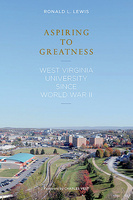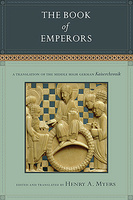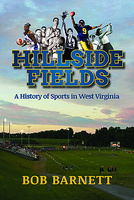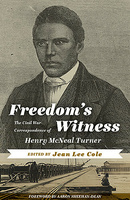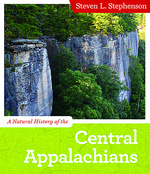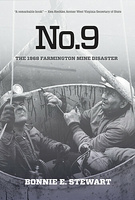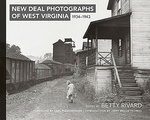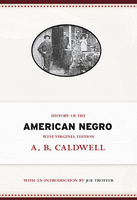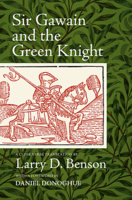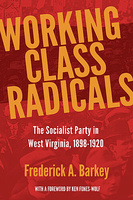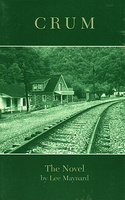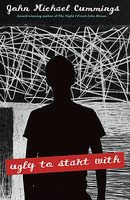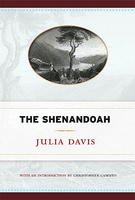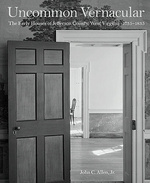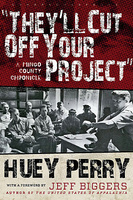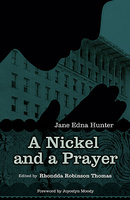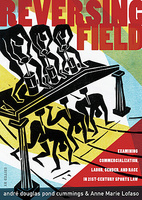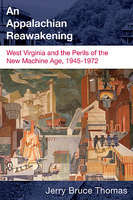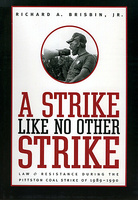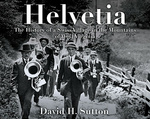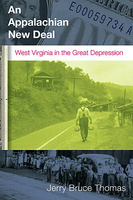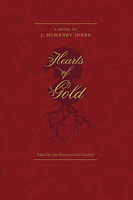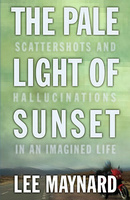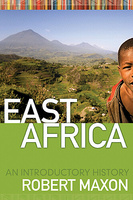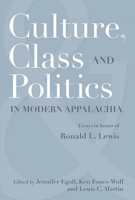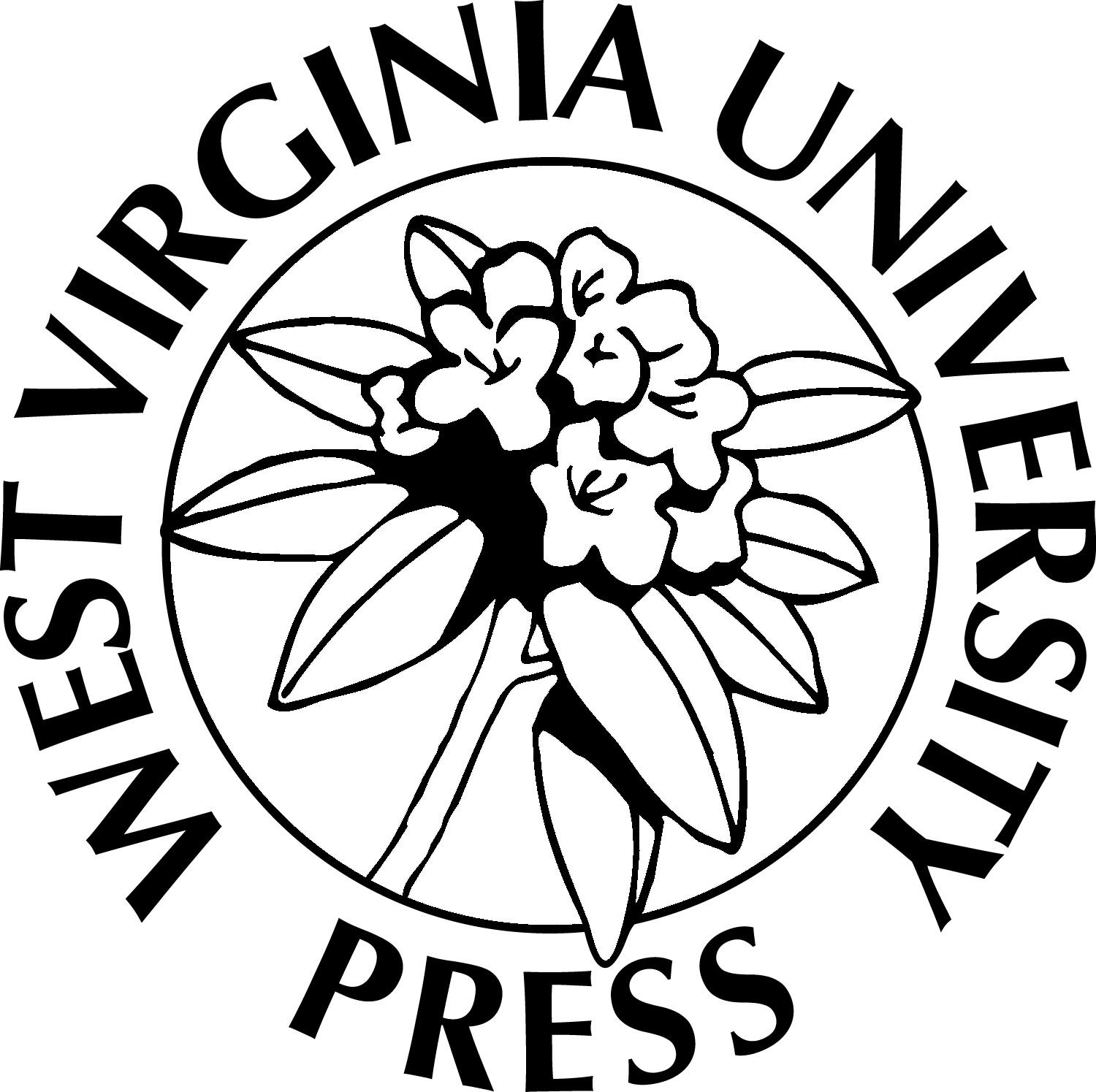
West Virginia University Press is the only university press, and the largest publisher of any kind, in the state of West Virginia. A part of West Virginia University, they publish books and scholarly journals by authors around the world, with a particular emphasis on Appalachian studies, history, higher education, the social sciences, and interdisciplinary books about energy, environment, and resources. They also publish works of fiction and creative nonfiction, and collaborate on innovative digital publications, notably West Virginia History: An Open Access Reader.
Aspiring to Greatness
West Virginia University Since World War II
Aspiring to Greatness: West Virginia University since World War II chronicles the emergence of WVU as a major land-grant institution. As a continuation of the work of Doherty and Summers in West Virginia University: Symbol of Unity in a Sectionalized State, this book focuses on the modern historical developments that elevated WVU from a small regional institution to one of national prominence.
- Copyright year: 2013
The Book of Emperors
A Translation of the Middle High German Kaiserchronik
The Kaiserchronik (c.1152–1165) is the first verse chronicle to have been written in a language other than Latin. This story recounts the exploits of the Roman, Byzantine, Carolingian, and Holy Roman kings and rulers, from the establishment of Rome to the start of the Second Crusade. As an early example of popular history, it was written for a non-monastic audience who would have preferred to read, or may only have been able to read, in German. As a rhymed chronicle, its combined use of the styles of language found within a vernacular epic and a factual treaty was a German innovation. The Book of Emperors is the first complete translation of the Kaiserchronik from Middle High German to English. It is a rich resource not only for medieval German scholars and students, but also for those working in early cultural studies. It brings together an understanding of the conception of kingship in the German Middle Ages, from the relationship between emperor and king, to the moral, theological, and legal foundations of claims and legitimacy and the medieval epistemological approaches to historiography. This translation includes a substantial introduction that discusses the historical and philological context of the work, as well as the themes of power and kingship. Each chapter begins with a brief introduction that distinguishes historical truths from the epic fiction found within the original text.
- Copyright year: 2013
Hillside Fields
A History of Sports in West Virginia
- Copyright year: 2013
The Proper Words for Sin
- Copyright year: 2013
Freedom's Witness
The Civil War Correspondence of Henry McNeal Turner
- Copyright year: 2013
A Natural History of the Central Appalachians
- Copyright year: 2013
No.9
The 1968 Farmington Mine Disaster
- Copyright year: 2011
New Deal Photographs of West Virginia, 1934-1943
- Copyright year: 2012
History of the American Negro
West Virginia Edition
- Copyright year: 2012
Centerville
- Copyright year: 2012
The Backyard Brawl
Stories from One of the Weirdest, Wildest, Longest Running, and Most Instense Rivalries in College Football History
- Copyright year: 2012
Sir Gawain and the Green Knight
A Close Verse Translation
- Copyright year: 2012
Working Class Radicals
The Socialist Party in West Virginia, 1898-1920
Working Class Radicals: The Socialist Party in West Virginia, 1898-1920 examines the rise and fall of organized socialism in West Virginia through an exploration of the demographics of membership, oral interview material gathered in the 1960s from party members, and the collapse of the party in the wake of the Paint Creek-Cabin Creek coal-mining strike of 1912. The first local branch of the West Virginia Socialist Party was established in Wheeling in 1901 and by 1914 several thousand West Virginians were dues-paying members of local branches. By 1910 local Socialists began to elect candidates to office and in 1912 more than 15,000 West Virginian voters cast their ballots for Socialist presidential candidate Eugene Debs. The progress that West Virginia socialists achieved on the electoral front was a reflection of the party’s strategy of increasing class-consciousness by working with existing unions to build the power of the labor movement. The party appealed to a fairly broad cross section of wage earners and its steady growth also owed much to the fact that many members of the middle class were attracted to the cause. Several factors combined to send the party into rapid decline, most importantly deep fissures between class and craft factions of the party and 1915 legislation making third party political participation difficult. Working Class Radicals offers insight into the various internal and external forces that doomed the party and serves as a cautionary tale to contemporary political leaders and organizers.
- Copyright year: 2012
The Scummers
- Copyright year: 2011
SCREAMING WITH THE CANNIBALS
- Copyright year: 2004
West Virginia
Its Farms and Forests, Mines and Oil-Wells
West Virginia: Its Farms and Forests, Mines and Oil-Wells celebrates the state of West Virginia. Originally published in 1865 as a series of studies on mineral resources, observations on agriculture, and interviews with businessmen, West Virginia details the industrial statistics, terrain, and population of a state during its infancy. With no record of natural wealth or reported transactions of agriculture or geography prior to this overview, West Virginia sparked the curiosity of non-residents, enticing investment and settlement through descriptions of abundant natural resources and an agreeable industrial condition. With an introduction by Kenneth R. Bailey, this new edition reminds us of the state’s alluring beginning and rich, yet often exploited development.
- Copyright year: 2011
Ugly to Start With
- Copyright year: 2011
The Shenandoah
- Copyright year: 2011
Uncommon Vernacular
The Early Houses of Jefferson County, West Virginia, 1735-1835
Allen’s refreshing perspective illuminates the vibrant vernacular architecture of Jefferson County, connecting the housing of this area to the rich history of the Shenandoah Valley. Varying features of house siting, plan types, construction techniques, building materials, outbuildings, and exterior and interior detailing illustrate the blending of German, Scots-Irish, English, and African cultures into a distinct, regional style.
- Copyright year: 2011
They'll Cut Off Your Project
A Mingo County Chronicle
In old England, if a king didn’t like you, he would cut off your head. Now, if they don’t like you, they’ll cut off your project!
As the Johnson Administration initiated its war on poverty in the 1960s, the Mingo County Economic Opportunity Commission project was established in southern West Virginia. Huey Perry, a young, local history teacher was named the director of this program and soon he began to promote self-sufficiency among low-income and vulnerable populations. As the poor of Mingo County worked together to improve conditions, the local political infrastructure felt threatened by a shift in power. Bloody Mingo County, known for its violent labor movements, corrupt government, and the infamous Hatfield-McCoy rivalry, met Perry’s revolution with opposition and resistance.
In They’ll Cut Off Your Project, Huey Perry reveals his efforts to help the poor of an Appalachian community challenge a local regime. He describes this community’s attempts to improve school programs and conditions, establish cooperative grocery stores to bypass inflated prices, and expose electoral fraud. Along the way, Perry unfolds the local authority’s hostile backlash to such change and the extreme measures that led to an eventual investigation by the FBI. They’ll Cut Off Your Project chronicles the triumphs and failures of the war on poverty, illustrating why and how a local government that purports to work for the public’s welfare cuts off a project for social reform.
- Copyright year: 2010
A Nickel and a Prayer
Virtually unknown outside of her adopted hometown of Cleveland, Ohio, Jane Edna Harris Hunter was one of the most influential African American social activists of the early-to mid-twentieth century. In her autobiography A Nickel and a Prayer, Hunter presents an enlightening two-part narrative that recollects her formative years in post-Civil War South and her activist years in Cleveland. First published in 1940, Hunter’s autobiography recalls a childhood filled with the pleasures and pains of family life on the former plantation where her ancestors had toiled, adventures and achievements in schools for African American children, tests and trials during her brief marriage, and recognition and respect while completing nursing training and law school. When sharing the story of her life as an activist, Hunter describes the immense obstacles she overcame while developing an interracial coalition to support the Phillis Wheatley Association and nurturing its growth from a rented home that provided accommodation for twenty-two women to a nine-story building that featured one hundred and thirty-five rooms.
This new and annotated edition of A Nickel and a Prayer includes the final chapter, “Fireside Musings,” that Hunter added to the second, limited printing of her autobiography and an introduction that lauds her as a multifaceted social activist who not only engaged in racial uplift work, but impacted African American cultural production, increased higher education opportunities for women, and invigorated African American philanthropy. This important text restores Jane Edna Harris Hunter to her rightful place among prominent African American race leaders of the twentieth century.
- Copyright year: 2010
Reading Old English
A Primer and First Reader, Revised Edition
- Copyright year: 2010
REVERSING FIELD
EXAMINING COMMERCIALIZATION, LABOR, GENDER, AND RACE IN 21ST CENTURY SPORTS LAW
- Copyright year: 2010
An Appalachian Reawakening
West Virginia and the Perils of the New Machine Age, 1945-1972
As the long boom of post-World War II economic expansion spread across the globe, dreams of white picket fences, democratic ideals, and endless opportunities flourished within the United States. Middle America experienced a period of affluent stability built upon a modern age of industrialization. Yet for the people of Appalachia, this new era brought economic, social, and environmental devastation, preventing many from realizing the American Dream. Some families suffered in silence; some joined a mass exodus from the mountains; while others, trapped by unemployment, poverty, illness, and injury became dependent upon welfare. As the one state most completely Appalachian, West Virginia symbolized the region's dilemma, even as it provided much of the labor and natural resources that fueled the nation's prosperity.
An Appalachian Reawakening: West Virginia and the Perils of the New Machine Age, 1945-1972 recounts the difficulties the state of West Virginia faced during the post-World War II period. While documenting this turmoil, this valuable analysis also traces the efforts of the New Frontier and Great Society programs, which stimulated maximum feasible participation and lead to the ultimate rise of grass roots activities and organizations that improved life and labor in the region and undermined the notion of Appalachian fatalism.
- Copyright year: 2010
Still Life with Plums
Short Stories
- Copyright year: 2010
Roll Out the Carpet
101 Seasons of West Virginia University Basketball
- Copyright year: 2010
A Strike Like No Other Strike
Law and Resistance During the Pittston Coal Strike of 1989-1990
The miners' strike against Pittston Coal in 1989–1990, which spread throughout southwestern Virginia, southern West Virginia, and eastern Kentucky, was one of the most important strikes in the history of American labor, and, as Richard Brisbin observes, "one of the longest and largest incidents of civil disorder and civil disobedience in the United States in the second half of the twentieth century." The company aggressively sought to break the strike, and workers and their families used a variety of tactics—lawful and unlawful—to resist Pittston's efforts as the situation quickly turned ugly.
In A Strike like No Other Strike: Law and Resistance during the Pittston Coal Strike of 1989–1990, Richard Brisbin offers a compelling study of the exercise of political power. In considering the legal significance of the strike, Brisbin asks the larger question of whether even extreme transgression or resistance can fracture the "imagined coherence of the law." He shows how each party in the strike invoked the law to justify its actions while attacking those of the other side as unlawful. In the end, both sides lost; although the U.S. Supreme Court ultimately ruled in favor of the union, most of the strikers faced elimination of their jobs and an ongoing struggle for pensions and health benefits.
- Copyright year: 2010
PERSPECTIVES ON THE OLD SAXON HELIAND
INTRODUCTORY AND CRITICAL ESSAYS, WITH AN EDITION OF THE LEIPZIG FRAGMENT
- Copyright year: 2010
CROSS AND CRUCIFORM IN THE ANGLO-SAXON WORLD
STUDIES TO HONOR THE MEMORY OF TIMOTHY REUTER
- Copyright year: 2010
Helvetia
The History of a Swiss Village in the Mountains of West Virginia
- Copyright year: 2010
AN APPALACHIAN NEW DEAL
WEST VIRGINIA IN THE GREAT DEPRESSION
In this paperback edition of An Appalachian New Deal: West Virginia in the Great Depression, Jerry Bruce Thomas examines the economic and social conditions of the state of West Virginia before, during, and after the Great Depression. Thomas’s exploration of personal papers by leading political and social figures, newspapers, and the published and unpublished records of federal, state, local, and private agencies, traces a region’s response to an economic depression and a presidential stimulus program. This dissection of federal and state policies implemented under Franklin D. Roosevelt’s New Deal program reveals the impact of poverty upon political, gender, race, and familial relations within the Mountain State—and the entire country. Through An Appalachian New Deal, Thomas documents the stories of ordinary citizens who survived a period of economic crisis and echoes a message from our nation’s past to a new generation enduring financial hardship and uncertainty.
OLD SOUTH, NEW SOUTH, OR DOWN SOUTH?
FLORIDA AND THE MODERN CIVIL RIGHTS MOVEMENT
- Copyright year: 2009
THE PALE LIGHT OF SUNSET
SCATTERSHOTS AND HALLUCINATIONS IN AN IMAGINED LIFE
- Copyright year: 2009
PARADOX HILL
"FROM APPALACHIA TO LUNAR SHORE, REVISED EDITION"
- Copyright year: 2009
CULTURE, CLASS, AND POLITICS IN MODERN APPALACHIA
ESSAYS IN HONOR OF RONALD L. LEWIS
- Copyright year: 2009
THE SAFETY OF DEEPER WATER
- Copyright year: 2009

